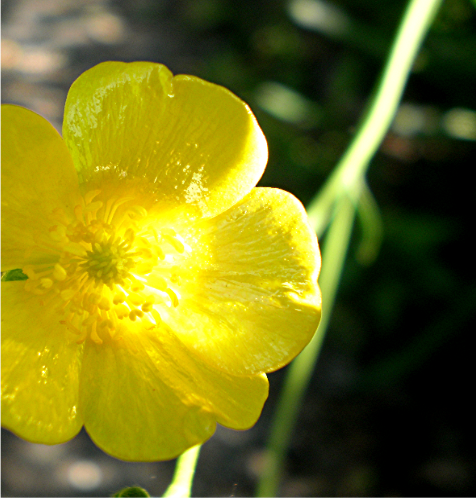 (This essay was originally posted as a response to killing Mother's blog post, Owning Paradise: Snapshots from the Edge.)
(This essay was originally posted as a response to killing Mother's blog post, Owning Paradise: Snapshots from the Edge.)Thank you, killing Mother, for your thoughtful essay.
As a social ecologist, nature photographer, and empath, I have experienced similar revelations--and have put some to pen--but not so eloquently as you in this essay.
It is painful to see the widening gap between rich and poor, especially since the poor once had rights to living nature; now it appears that access to nature (and its resources) is becoming a privilege for the very wealthy. I think about the Mexican farmers who are now gradually being forced to purchase water from increasingly privatized supplies controlled by the likes of Nestle.
I once read that the names of housing developments are often derived from the animal or habitat they displace, such as "Fox Run," "The Owl's Nest," "Crystal Grove," etc. It is all very sickening.
Watching the world through a lens and then presenting the image to the world is vaguely understood as a dishonest process (at least by omission,) and lately, I have been waking up in the middle of the night thinking of my studies in college, and books like Camera Lucida. I think about how the digital encroachment into photography helped soup up photographs so that roses became "punched up pink," and how an ordinary-looking photograph could look somewhat extra-ordinary with software modifications.
Also coming to mind from reading the Owning Paradise essay is a story that Murray Bookchin shared with us at the Social Ecology intensive quite a number of years ago: That fish--just as we are--are sentient beings, and Murray shared an example of how one fish tried to keep another propped up in the water as it was dying...
These strange stories stay with me in the wee hours. Your story, killing Mother, will keep me up too.
I once read that the names of housing developments are often derived from the animal or habitat they displace, such as "Fox Run," "The Owl's Nest," "Crystal Grove," etc. It is all very sickening.
Watching the world through a lens and then presenting the image to the world is vaguely understood as a dishonest process (at least by omission,) and lately, I have been waking up in the middle of the night thinking of my studies in college, and books like Camera Lucida. I think about how the digital encroachment into photography helped soup up photographs so that roses became "punched up pink," and how an ordinary-looking photograph could look somewhat extra-ordinary with software modifications.
Also coming to mind from reading the Owning Paradise essay is a story that Murray Bookchin shared with us at the Social Ecology intensive quite a number of years ago: That fish--just as we are--are sentient beings, and Murray shared an example of how one fish tried to keep another propped up in the water as it was dying...
These strange stories stay with me in the wee hours. Your story, killing Mother, will keep me up too.

No comments:
Post a Comment